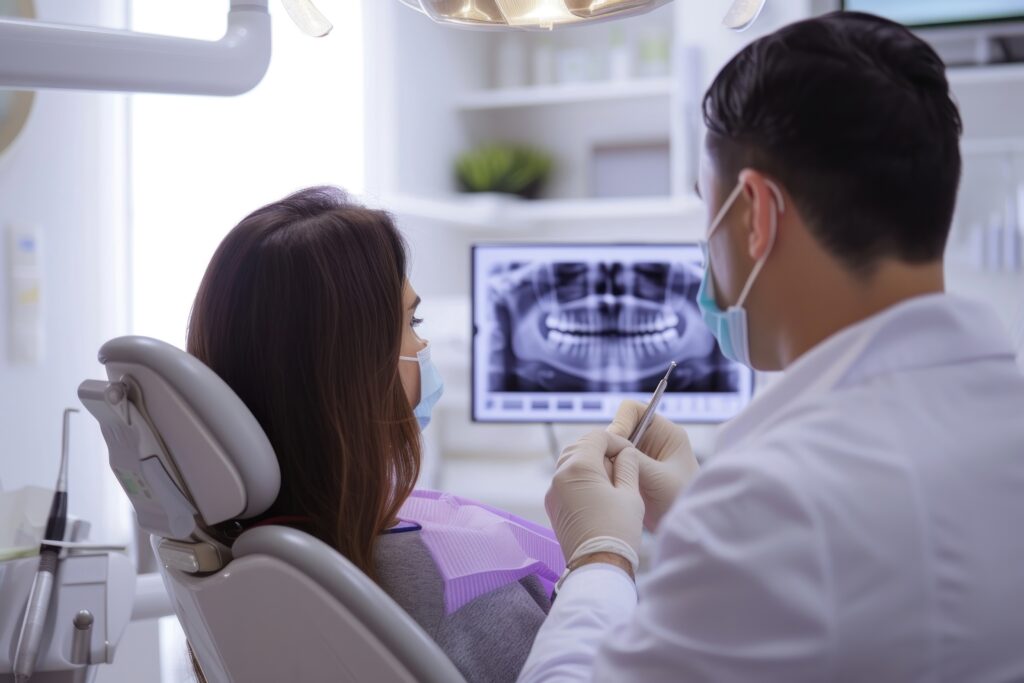
Regular dental check-ups are essential for maintaining good oral health, but one crucial component that often goes unnoticed is the role of dental X-rays. While many people may associate X-rays with treatment, they are just as important in preventive care. X-rays, also known as radiographs, offer a deeper look beyond what the dentist can see during a routine visual examination. By identifying underlying problems early on, regular dental X-rays can prevent minor issues from becoming significant, often expensive, complications.
Here are some of the key benefits of incorporating X-rays into your preventive dental care routine.
1. Early Detection of Cavities and Decay
Tooth decay is one of the most common dental problems, and it often begins in areas that are difficult to detect during a standard examination, such as between the teeth or below the gumline. X-rays can catch cavities in these hidden areas before they become visible to the naked eye. Early detection allows for quicker, less invasive treatments, potentially preventing the need for more complex procedures like root canals or tooth extractions.
2. Monitoring Bone Health
Dental X-rays are not just about teeth; they also reveal the condition of the jawbone. In particular, they can identify bone loss, which is often a sign of periodontal disease. Catching bone deterioration early through X-rays allows dentists to implement treatment strategies before it leads to tooth loss or other severe complications.
For those who are candidates for dental implants or other restorative procedures, X-rays play a crucial role in assessing whether the jawbone is healthy and strong enough to support these treatments.
3. Identifying Gum Disease
Gum disease, or periodontal disease, can progress silently, sometimes without pain or obvious symptoms. However, X-rays provide a comprehensive view of the bone supporting the teeth, which can help in diagnosing gum disease early. Periodontal disease can lead to tooth loss if untreated, so regular monitoring with X-rays can be instrumental in keeping your gums healthy and your smile intact.
4. Tracking Development in Children and Adolescents
For children and teenagers, X-rays are particularly useful for tracking the development of their teeth and jaw. They can help detect potential problems with tooth alignment, wisdom teeth growth, and even early signs of overcrowding. By spotting these issues early, orthodontic treatments can be planned accordingly to guide proper development and prevent more invasive interventions later in life.
5. Identifying Cysts, Tumors, and Other Abnormalities
While rare, cysts and tumors can develop in the bones of the face, sometimes leading to significant health problems if left undetected. X-rays can reveal these abnormalities before they grow or spread, enabling prompt diagnosis and treatment. Routine preventive X-rays ensure that any anomalies are discovered as early as possible.
6. Ensuring Overall Oral Health
X-rays provide an overall picture of oral health, giving dentists a tool to identify problems that may not cause symptoms for years. By taking a proactive approach to dental care, patients can avoid future pain, discomfort, and costly treatments. Regular X-rays are essential for a comprehensive view of your oral health.
For more information about how preventive dental care can improve your overall health, visit Centre Dentaire Aoude.
Conclusion
Incorporating regular X-rays into your dental visits can lead to better oral health outcomes. Whether it’s detecting cavities early, monitoring gum health, or identifying more serious issues like cysts and tumors, X-rays are a vital tool in preventive dentistry. Don’t wait for problems to become painful or costly; ask your dentist about scheduling regular X-rays as part of your routine check-up.


